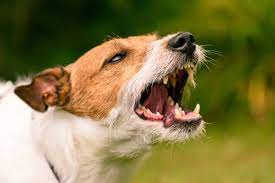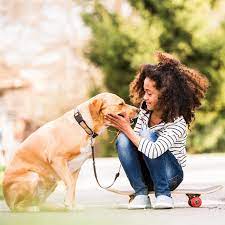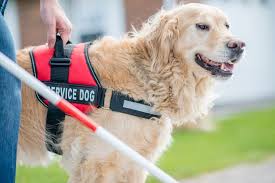Why Do Dogs Bite Each Other’s Necks?


When observing dogs interacting with each other, it’s not uncommon to see them engaging in behaviors such as biting or nipping at each other’s necks. This seemingly aggressive behavior can puzzle dog owners and onlookers alike. However, there are various reasons behind this behavior that go beyond mere aggression. In this article, we will delve into the fascinating world of canine behavior and explore the factors that contribute to dogs biting each other’s necks.
The Role of Neck Biting in Dog Behavior


Neck biting is a behavior exhibited by dogs in different contexts. It can serve various purposes, including communication, dominance assertion, play, social interaction, mating behavior, and even conflict resolution. Let’s explore each of these aspects in more detail:
Natural Instincts and Survival
Dogs are descendants of wolves, and many of their behaviors are rooted in their ancestral instincts. In the wild, wolves and other canines bite each other’s necks as a way to establish dominance, control, and protect valuable resources such as food or territory. This instinctive behavior can still manifest in domesticated dogs.
Communication and Dominance
Neck biting can be a form of communication between dogs. It may convey dominance or submission, allowing them to establish hierarchies within their social groups. Dogs biting each other’s necks can indicate one dog asserting its authority or another dog submitting to a dominant individual.
Play and Social Interaction
During play sessions, dogs often engage in mock fighting behaviors, including gentle neck biting. This behavior serves as a way to practice their hunting and fighting skills, enhance their physical coordination, and bond with their playmates. Playful neck biting is typically accompanied by loose body language and wagging tails, indicating it is part of a friendly interaction.
Mating Behavior and Reproduction
Neck biting plays a significant role in mating behavior among dogs. During the mating process, male dogs often bite the neck of the female to hold her in place. This behavior helps ensure successful mating and is part of the reproductive instinct in canines.
Environmental and Genetic Factors
Some dogs may have a higher inclination to engage in neck biting due to environmental and genetic factors. For example, dogs that have not been adequately socialized or have had negative experiences may exhibit fear-based aggression, including neck biting. Additionally, certain breeds may have a predisposition for more assertive behaviors.
Aggression and Conflict Resolution
In some cases, dogs may resort to neck biting as a form of aggression or during conflicts. This behavior can occur due to resource guarding, territorial disputes, or fear-based responses. It is important to address and manage such aggression appropriately through training and professional guidance.
Preventing and Managing Neck Biting
As responsible dog owners, it is essential to prevent and manage neck biting behavior to ensure the safety and well-being of our furry companions. Here are some strategies to consider:
Training and Socialization
Proper training and early socialization play a crucial role in shaping a dog’s behavior. By exposing them to various people, animals, and environments during their critical developmental stages, we can help them become well-adjusted and less likely to engage in aggressive behaviors, such as neck biting.
See also: The Best Toys and Accessories for Your Beagle Mixed Puppy
Positive Reinforcement
Using positive reinforcement techniques can be highly effective in discouraging undesirable behaviors. Rewarding dogs for good behavior and redirecting their attention can help shift their focus away from neck biting. Offering treats, praise, and playtime when they display appropriate behavior fosters a positive environment.
Seeking Professional Help
If a dog’s neck biting behavior becomes a persistent issue or poses a safety concern, consulting with a professional dog trainer or behaviorist is advisable. They can assess the underlying causes and develop a tailored training plan to address the specific behavior and ensure the dog’s well-being.
Conclusion
Dogs biting each other’s necks can have multiple motivations, ranging from natural instincts to social interactions and mating behaviors. Understanding the various reasons behind this behavior allows us to better comprehend our canine companions and create an environment that promotes positive interactions. By providing appropriate training, socialization, and seeking professional help when needed, we can manage neck biting behavior effectively and ensure harmonious relationships between dogs and their human counterparts.
FAQs about Dogs biting each other’s necks


Here are the FAQs related to dogs biting each others necks:
Is neck biting among dogs always a sign of aggression?
Neck biting among dogs can serve different purposes, and it’s not always indicative of aggression. It can be a form of communication, play, or even a part of mating behavior. However, it’s important to assess the context and body language of the dogs involved to determine if it’s a friendly interaction or a potentially aggressive one.
How can I prevent neck biting during play sessions?
To prevent neck biting from escalating during play, ensure that the play environment is safe and supervise the dogs closely. Encourage positive play behaviors, redirect their attention if the biting becomes excessive, and provide appropriate chew toys to satisfy their natural urge to bite and chew.
Can neck biting lead to injuries in dogs?
Neck biting can potentially lead to injuries if the biting is excessive, aggressive, or if the dogs involved have a significant size difference. It’s crucial to monitor their interactions and intervene if necessary to prevent any harm.
Why do male dogs bite the neck of female dogs during mating?
Male dogs bite the neck of female dogs during mating to hold them in place. This behavior is a part of their instinctual mating process and helps ensure a successful reproduction.
What should I do if my dog displays aggressive neck-biting behavior?
If your dog displays aggressive neck-biting behavior, it’s important to seek professional help from a dog trainer or behaviorist. They can assess the underlying causes, develop a behavior modification plan, and provide guidance on managing the aggression effectively.




